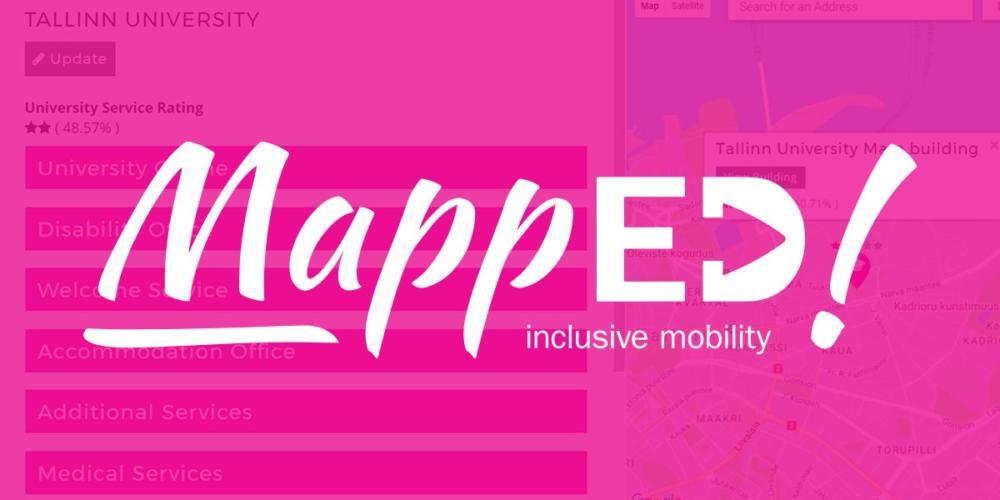
MappED! Providing Equal Opportunities to Students with Disabilities for their Participation in the Erasmus+ Programme
By Aoileann Ní Bhroin
Posted: 13 July, 2017
MappED! – Providing Equal Opportunities to Students with Disabilities for their Participation in the Erasmus+ Programme
The Erasmus Student Network recently launched its new service, MappED! – the platform for inclusive academic mobility. MappED! is a unique platform where students with disabilities can find all relevant information to support their participation in academic mobility programmes.
MappED! is a platform that provides information on various aspects of mobility with a focus on students with disabilities. The interactive map rates a university on: the accessibility of its physical location, the user friendliness of its website and the availability of services provided for students with disabilities. Over 350 higher education institutions have been mapped.
The map is crowd sourced, with content generated through user submissions. This has been made simple with the MappED! mobile app, available on Android. Through the app, anyone can review and submit information on their universities’ accessibility within minutes.
Thomas Pappas, Board Member of ESN comments “At 0.15%, the rate of students with disabilities going on exchange is abysmal. With MappED!, we hope to encourage more students with disabilities to go abroad, by providing them security in the knowledge that support services are available to them at their host universities.”
MappED.eu also features an Info Centre, where students are able to read about the special funding opportunities available, find the contact information of all relevant bodies in the application process, and read the many inspirational ‘success stories’ of those who managed to complete their study period abroad despite their disability.
MappED!is a project of the Erasmus Student Network – established with the aim of providing equal opportunities to students with disabilities for their participation in the Erasmus+ Programme. The project is supported by a consortium consisting of disability experts, International Relations Officers and student representatives from AHEAD, Jaccede, UNICA, the University of Vigo, University of Warsaw and Erasmus Student Network.


